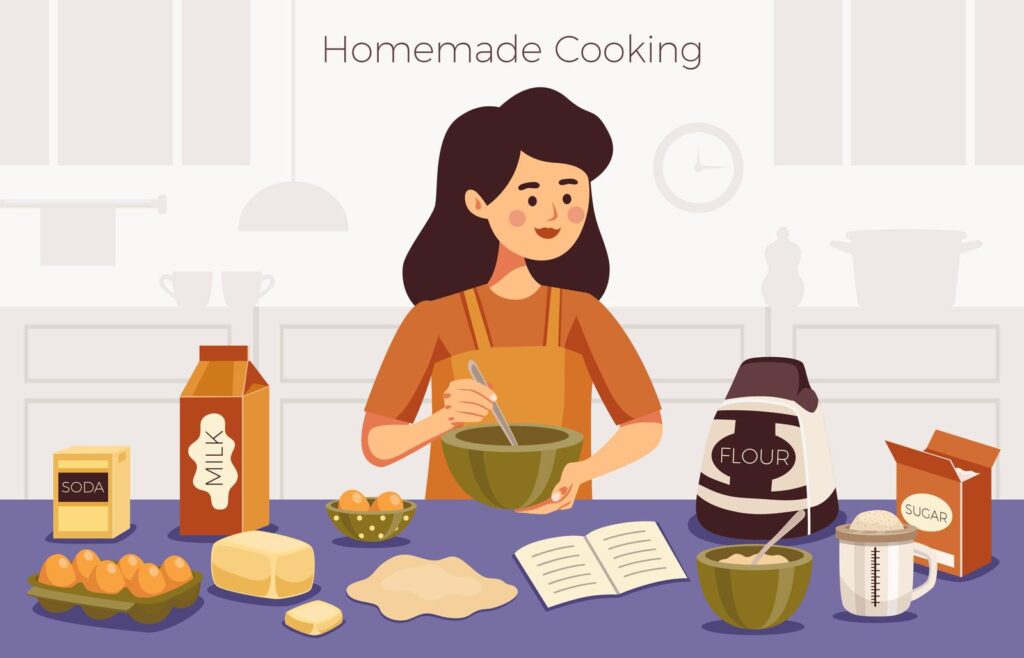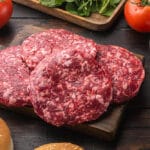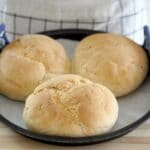
Measurements
Many experienced home cooks seldom measure their ingredients. They use a pinch of this and a pinch of that, relying on look and feel to know what’s right. The key word here is “experienced”. For the beginner, it is best to always measure your ingredients. A vital part of your kitchen should be a set of measuring cups and measuring spoons.
When measuring you should comply with the recipe in using “heaping” or “level” measurements. A “heaping” spoonful is just what it says; you heap the ingredient on the spoon. However, a “level” spoonful should be leveled by raking a knife or your finger across the top edge of the spoon.
Seasoning
Proper use of seasoning is one of the secrets to cooking. Good cooks season “to taste”. In other words, when possible use a little less seasoning than the recipe calls for and taste the dish when nearly finished cooking. Then add more seasoning to achieve the flavor you prefer.
Baking
Oven temperatures vary. Because the dial says 400 degrees does not necessarily mean your individual oven will be 400 degrees. The trick is to always use a timer when baking and check the dish a few minutes before the prescribed baking time expires. Then adjust the baking time as needed for your oven.
Always pre-heat your oven to the required baking temperature. Never start your baking in a cold oven.
Tools of the Trade
A good set of pots and pans, while not essential, will certainly make the job easier and more pleasant. With some dishes the wrong cooking utensil may even ruin your dish. You should not use reactive pots and pans when cooking acidic foods. Reactive materials impart a metallic taste and can discolor your food. Two common acidic foods are tomato or vinegar based dishes. Reactive metals include aluminum, copper and cast iron. Non-reactive materials are enamel, glass and stainless steel.
Timing
A common problem beginners have is in timing their cooking so that everything gets to the table hot. This is not rocket science, just a matter of planning ahead. Here’s how. Before putting anything on the stove, take a minute to think about the cooking time required for each food item. For example, you are preparing hamburgers and french fries. The french fries will take considerable longer to cook that the hamburgers, therefore, you want to start the fries first. Simple, huh?
You should also be aware of certain foods that are difficult to keep hot or do not lend themselves to re-heating, such as mashed potatoes. They should always be the last dish cooked since they do not stay hot long and are really not very good cold.
These are just a few basics to cooking like an expert. Additional basic tips are included in all the other articles on this site.
General Tips
- Lay out all your ingredients before you begin to cook. Measure out ingredients and complete all chopping and sizing. If baking, preheat oven.
- Buy a good timer and use it. They are fairly inexpensive. Also, invest in a meat thermometer.
- Place a damp paper towel under mixing bowls to prevent from sliding around while mixing.
- The secret to boiled corn on the cob that explodes in your mouth is to bring a pot of water to a boil first. Then put the corn in and wait to come back to a boil. Then cook for 3 minutes. No more!
- To make lighter and fluffier mashed potatoes, add a pinch or two of baking powder to the potatoes before whipping.


